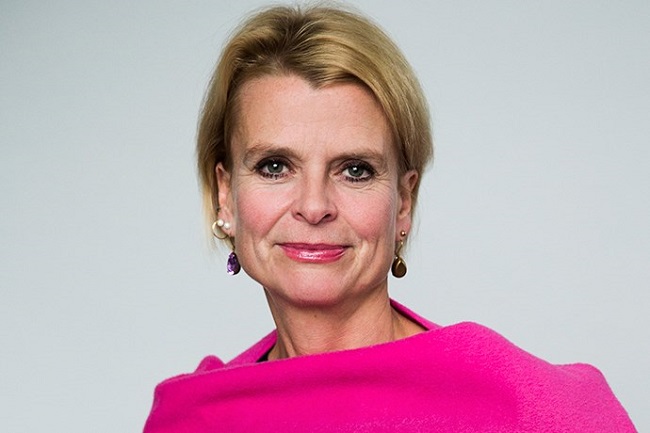Minister Regner on policy answers to refugee crisis

Sweden’s Gender Minister Åsa Regnér made the below speech at the Women in Parliaments Summit 2016 Amman, Jordan on 5 May 2016
Photo: Kristian Pohl/Government Offices
Our world is bleeding. We are faced with unprecedented humanitarian needs and levels of global forced displacement. Today, more than 59,5 million people are displaced worldwide as a result of persecution, conflict, generalized violence, or human rights violations – the highest number since the Second World War. UNHCR estimates that the average length of displacement has stretched to around an astonishing 17 years. This means that for many, becoming displaced is a life sentence.
This situation certainly concerns us all – and is a fitting reminder as we speak about Flight and Migration. It is also a fitting narrative for me as the representative of the world’s first Feminist Government.
Among the unprecedented numbers of refugees and internally displaced people, there are tens of millions of women and adolescent girls. Natural disasters and conflict impact women, girls, men and boys differently. In crises, patterns of gender discrimination can be exacerbated leaving women and girls uniquely vulnerable. The risk for women and girls to become targets of sexual and gender based violence is furthermore multiplied. A specific vulnerability in some contexts is child marriage.
Policy answers to the current refugee crisis need both short-term and long-term interventions.
In the short-term, all humanitarian responses should include a gender perspective and address the occurrence of sexual and gender based violence, a key protection concern and lifesaving activity. Sweden is honoured to take on the leadership of the “Call to Action on Protection from Gender-based Violence in Emergencies”. A central priority is to promote the inclusion of the initiative’s principles and actions in the outcomes of the World Humanitarian Summit.
We must all increase our efforts to prevent and respond to gender-based violence in humanitarian settings. The Call to Action constitutes an important platform for this work. I encourage all those here present today – governments, parliamentarians and other stakeholders – to join the Call to Action and to make concrete commitments to implement the initiative’s Road Map.
In the long-term, it should be underlined that women should not be seen only as victims, but also as important actors for peace, stability, security and prosperity. Therefore, I want to emphasise that the agenda on women, peace and security is a top priority for the Swedish Government. For Sweden, the women, peace and security agenda is about promoting change. For that to happen it takes committed and pro-active political leadership. We need to act differently to create peaceful and secure societies for all. It is precisely at times like these – times of crisis and unrest – that we must not hesitate, but instead be persistent in our efforts to strengthen women as agents for peace.
The rights of women and girls must be ensured in their countries of origin, along the migrant route, as well as in the country of destination.
I look forward to further discussion on this theme by our distinguished panellist. Thank you.
Swedish Government

